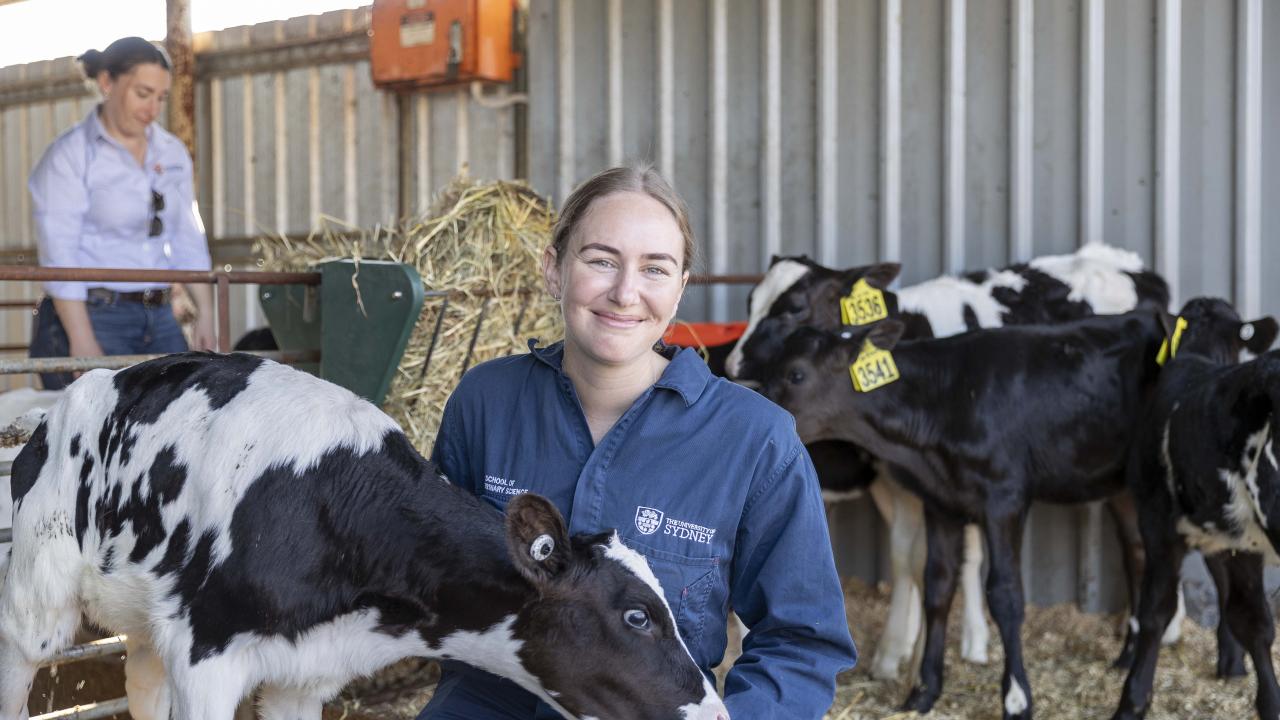Artificial Intelligence research turning up the heat

NEW technology is helping to improve the accuracy of heat tolerance ratings for Australian dairy cows.
Innovative sensor technologies, such as those used on dairy cattle, are generating large data sets that open up new research opportunities.
The Dairy UP team is taking advantage of this, in a project that aims to improve the accuracy of the Heat Tolerance Australian Breeding Value.
Under the supervision of Dr Anna Chlingaryan, Dairy UP PhD student Alice Shirley is using data from rumen sensors to explore how cattle respond differently to heat events.
The team is using artificial intelligence tools to develop a hybrid AI-based model to improve the assessment of heat tolerance in dairy cows. The model draws upon more than 20 years of cli mate and dairy cattle pro duction data to improve the identification of more heat-tolerant animals.
By collaborating with DairyBio and DataGene, Dairy UP researchers aim to contribute to a better tool for breeding dairy cattle with improved heat tolerance.
The current Heat Tolerance ABV, published by DataGene, allows farmers to identify and breed animals with greater ability to tolerate hot, humid conditions with less impact on milk production.
However, it is derived from DNA testing and has relatively low reliability, leading to slow uptake.
The research will develop phenotypes – indicators of animal performance that can be measured in commercial animals – to add to the model for the Heat Tolerance ABV.
Combining genomics with traditional and new measures of heat tolerance should improve the reliability and accuracy of the Heat Tolerance ABV.
The research used data from three Australian pasture-based dairy farms with more than 1400 cows fitted with rumen sensors to monitor core body temperature, every 10 minutes, 24 hours a day.
A water threshold model has been developed to track the impact of drinking on core body temperature.
Climate data from the past 20 years obtained from the Bureau of Meteorology has been used to match observations from the cows.
Initial research has found signifi cant variation between animals’ core body temperature and their drinking behaviour and demonstrated core body temperatures increased at lower Temperature and Humidity Index levels than previously thought.
The research will continue with a collaborative project by DairyBio and La Trobe University PhD student Laura Jensen under the supervision of Professor Jennie Pryce to combine the animals’ genetic and performance data with a variety of approaches, including the sensor technologies from the Dairy UP project.




Add new comment